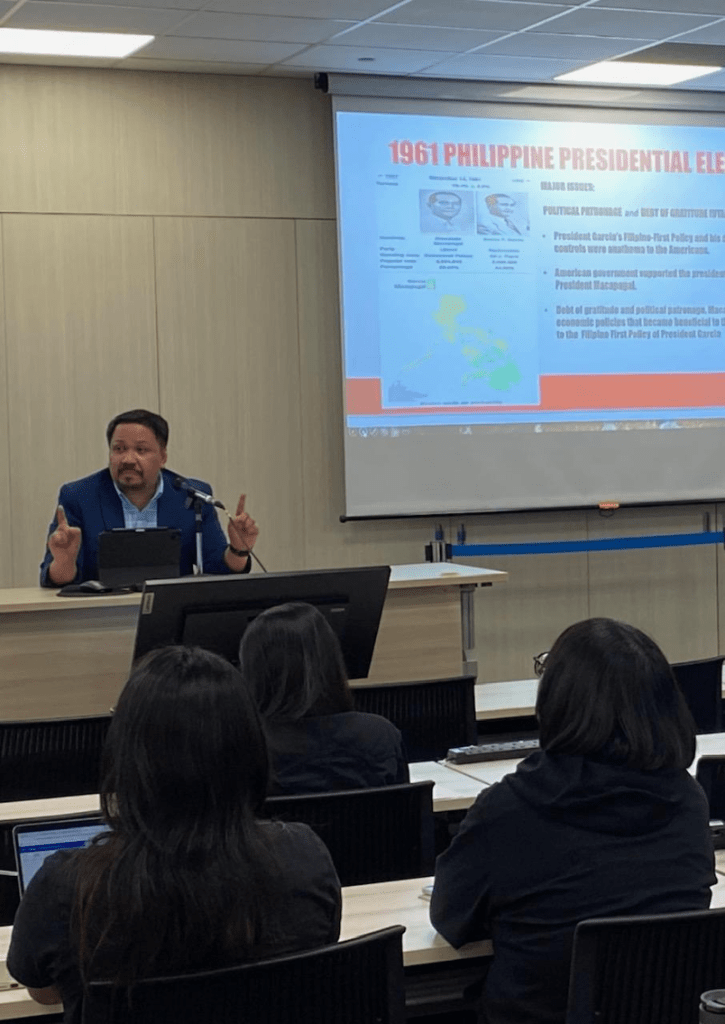UST Department of History Chairperson Assoc. Prof. Archie B. Resos, Ph.D., and UST Graduate School History Program Lead Assoc. Prof. Augusto V. de Viana, Ph.D., presented their research during the seminar on Decolonization and Autonomous Knowledge held from October 18 to 19, 2023 at the National University of Singapore (NUS).


In his paper “American Democracy and Philippine Political Culture: Decolonizing the United States’ Concept of Presidential Elections in the Philippines (1946-2022),” Resos tackled ways in which Filipinos applied the concept of American-style democracy and the influence of Filipino traits like “utang na loob,”close family ties, and familiarism. Resos also discussed the effect of emotionality in the conduct of elections from the administration of Manuel A. Roxas to Rodrigo R.` Duterte. He concluded that the resulting democratic tradition differed greatly from what the Americans intended for the Filipinos and the Americans supported presidents that would support their own objectives.
Meanwhile, de Viana discussed the decolonization of history-writing. He noted that foreign biases are always present in the writing of Philippine history especially about its precolonial past and early history, pointing out that the only way to remove these biases is to interpret history from the point of view of the Filipinos. He also discussed the characteristics of the history writing of propagandists like Jose Rizal and historians such as Gregorio F. Zaide, Teodoro Agoncillo, Renato Constantino, Onofre Corpuz, Samuel K. Tan, Nick Joaquin, Zeus Salazar and Ambeth Ocampo. In concluding his presentation, he said that history is always dynamic and that every generation should write their perspective of the past, critically examine its sources, and draw their own conclusions.
The two-day seminar was organized by the NUS Department of Malay Studies and the Department of Sociology and Anthropology and was participated in by speakers from other universities such as Ateneo de Manila University, Chinese University of Hong Kong, and local speakers from NUS. The seminar attendees were composed of graduate students from sociology, anthropology and Malay studies as well as faculty members and research staff. Numerous proposals for future joint activities were proposed after the seminar.




